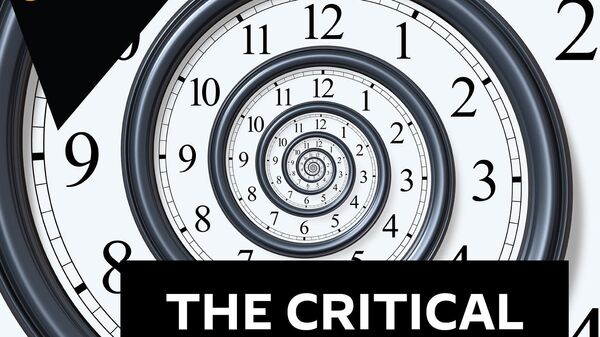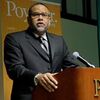The Democratic presidential race shifts Wednesday night to the Deep South: the 10 leading nominees will square off on an Atlanta, Georgia, stage with less than 11 weeks left before the Iowa caucuses. With the impeachment inquiry getting most of the spotlight, can the Democratic candidates break through and reclaim national attention? While the race is still up for grabs, four candidates have emerged as leaders in the field: Sens. Elizabeth Warren (D-MA) and Bernie Sanders (I-VT) are the progressive favorites; former US Vice President Joe Biden has strong support from black voters, which will help him particularly in South Carolina and on Super Tuesday; and South Bend, Indiana, Mayor Pete Buttigieg has broken out in recent Iowa polls. Quartz reported Wednesday: "Three septuagenarians are leading the race to challenge US President Donald Trump in 2020. But it’s their ability to appeal to both young and old voters alike that will determine who comes out on top. An exclusive national poll conducted days before tonight’s Democratic primary debate on MSNBC shows the top three candidates remain former Vice President Joe Biden, Senator Bernie Sanders and Senator Elizabeth Warren."
“'Everyone was in the loop. It was no secret.' Those are the two most important sentences in today’s opening statement by Gordon Sondland, the US ambassador to the European Union. Sondland’s public testimony was the most hotly anticipated of the impeachment inquiry," The Atlantic reported Wednesday. In my opinion, you can call this the 'yeah, duh' moment or the 'and your point is?' moment. This, to me, is the impeachment bombshell that did not explode. Let's try to think through the logic here: Democrats get articles of impeachment out of the House of Representatives. There’s a trial in the Senate, but no conviction. Where’s the upside for the Dems here?
"Bolivian lawmakers are set to meet later on Wednesday to try and agree on a path to new elections and defuse street violence that has killed 30 people since a disputed October vote," Reuters reported Wednesday. "The South American country’s two chambers of congress will discuss annulling the October 20 poll and appointing a new electoral board, paving the way for a new vote after long-term leftist leader Evo Morales resigned under pressure this month. Currently led by a caretaker government, Bolivia is grappling to mend stark divisions between Morales supporters and opponents seeking to move beyond his nearly 14-year rule. He stepped down on November 10 under pressure from protesters, civil groups, security forces and allies, as well as an international audit that found serious irregularities in the election count and cast doubt on his announced outright victory."
GUESTS:
Joia Jefferson Nuri — Communications specialist for In The Public Eye Communications.
Eugene Craig III — Republican strategist, former vice-chair of the Maryland Republican Party and grassroots activist.
David Schultz — Professor of political science at Hamline University.
Yves Engler — Montreal-based writer and political activist. In addition to his 10 books, Engler's writings have appeared in the alternative media and in mainstream publications such as The Globe and Mail and Toronto Star.
Nino Pagliccia — Activist and freelance writer based in Vancouver. A retired researcher from the University of British Columbia, Canada, Pagliccia is a Venezuelan-Canadian who follows and writes about international relations with a focus on the Americas, and is also the editor of the book “Cuba Solidarity in Canada – Five Decades of People-to-People Foreign Relations.”
We'd love to get your feedback at radio@sputniknews.com



